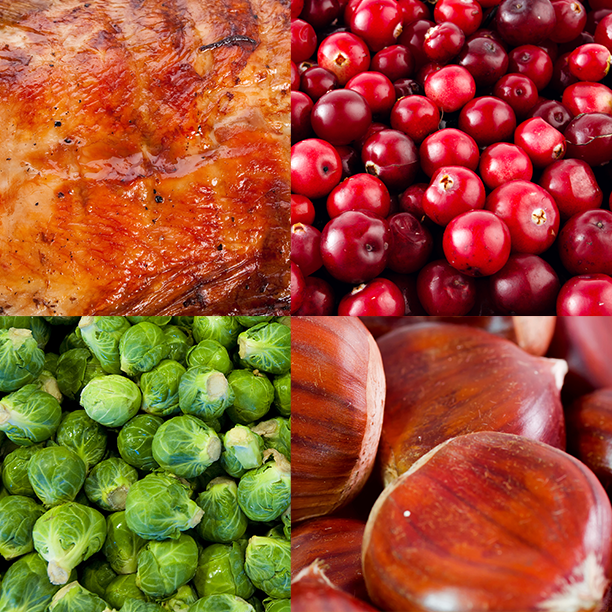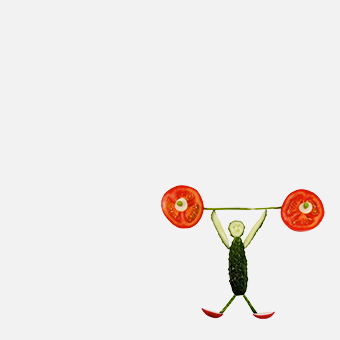Sprouts
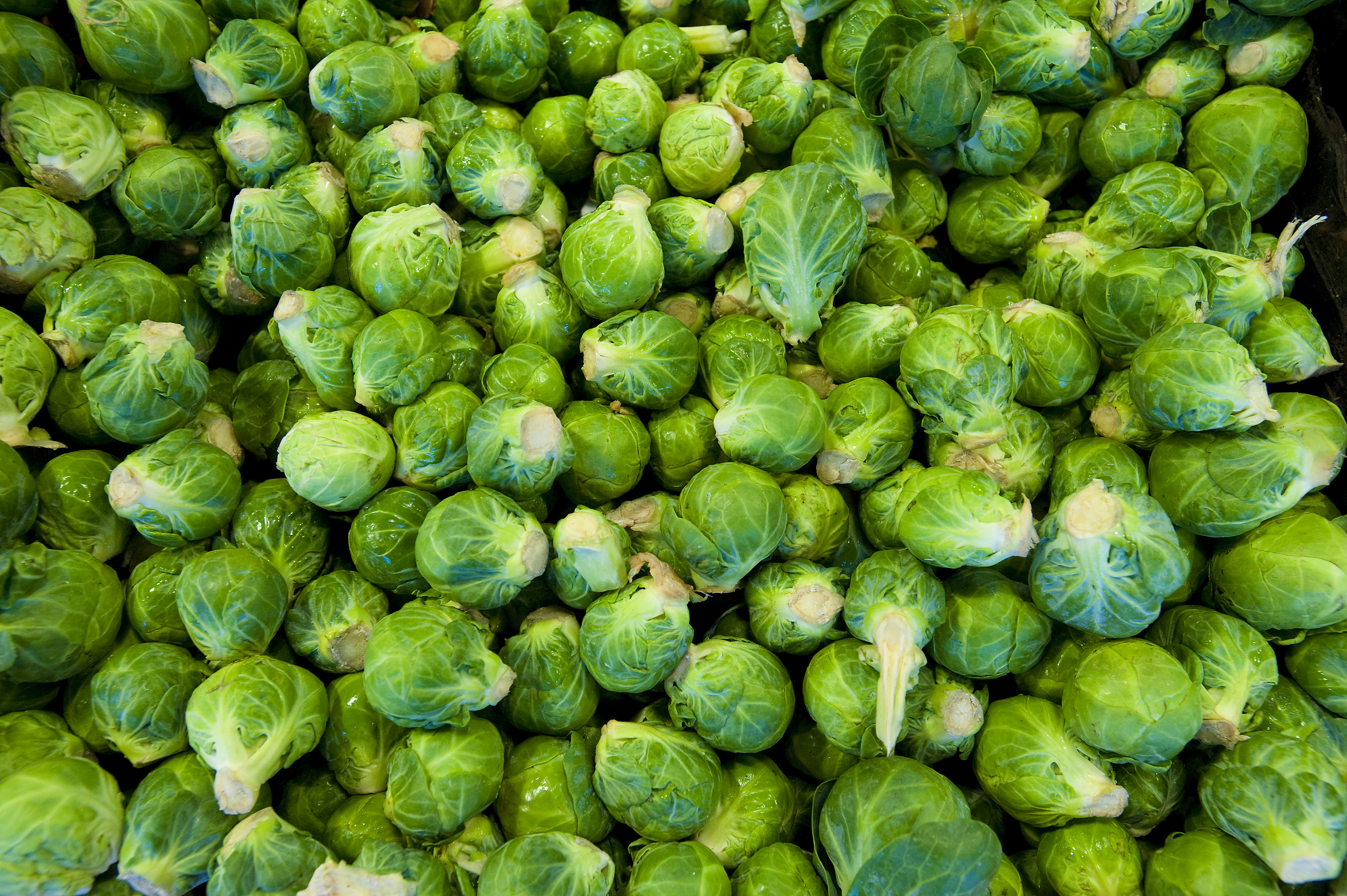
Sprouts say Christmas lunch more than any other vegetable, but they should be in our diet for more than one meal a year! They improve the digestion, boost the metabolism, reduce blood pressure and much more.
They were originally thought to have been grown in Belgium – hence the name. They are related to the cabbage, and look like mini cabbages, but they are sweeter and nuttier. They grow on thick stalks and are sometimes available in the supermarket like this, but they are also sold off the stalk in bags.
They should be green and firm with tightly packed leaves. Cut off any loose leaves and trim the base – some people make a cross in the bottom with a knife to help them cook more evenly. They are usually boiled gently for 5 to 10 minutes in salted water and served immediately, but be careful not to overcook, nobody likes soggy sprouts! You can stir in bacon or chestnuts for a Christmassy touch.
Try our Oriental Sprout stir-fry for a tasty twist on a Christmas favourite. click here.
Turkey
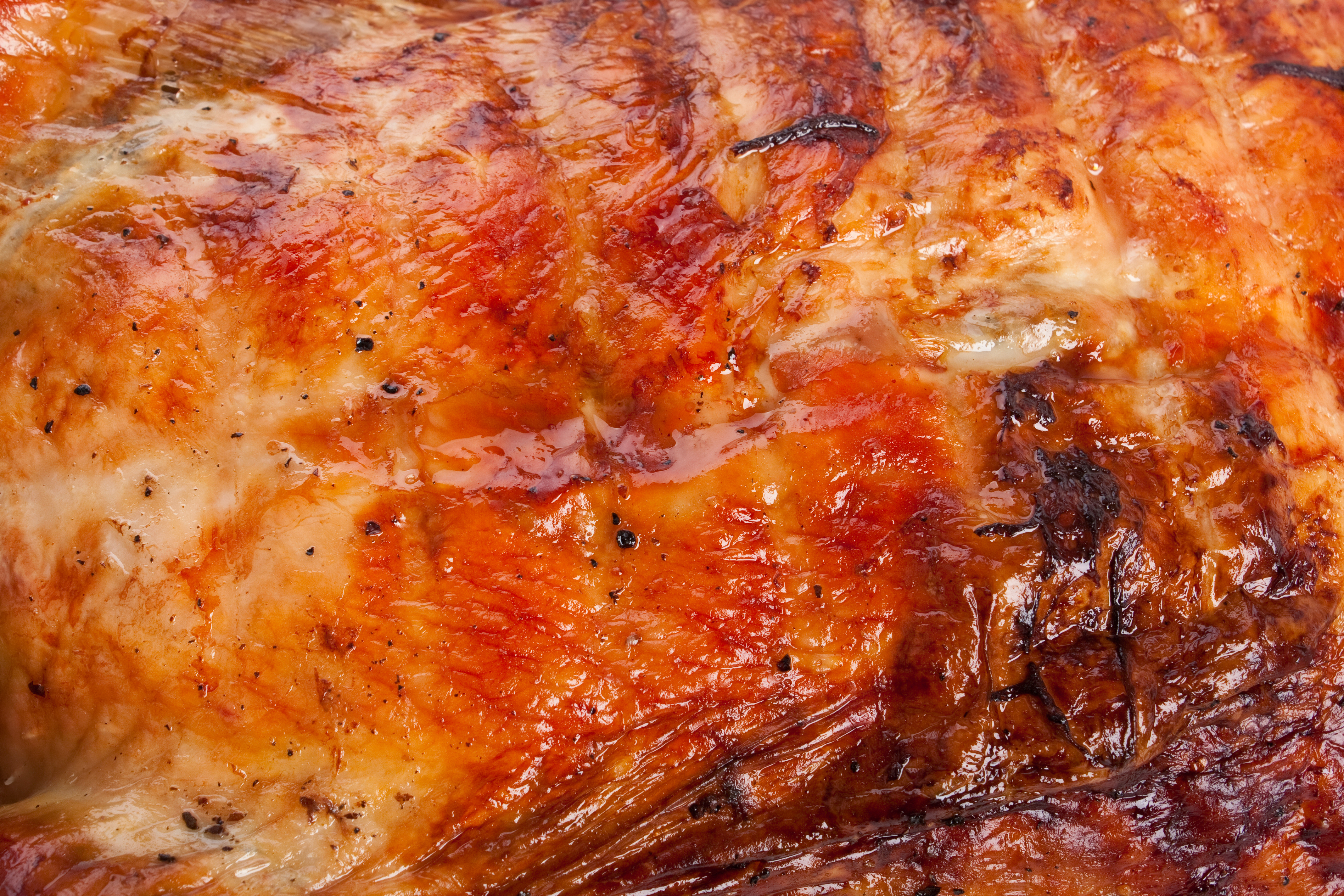
Turkey became popular in the UK in the 16th century, when Spaniards imported them from America. Henry VIII was apparently the first English king to enjoy the big-breasted bird, and Edward VII made it fashionable to eat them at Christmas.
The turkey was regarded as a luxury up until the 1950s, but is now a regular feature on the great majority of British Christmas tables. It is also the traditional Thanksgiving meal in the United States of America. And in both cases, turkey fills us up on the day and lasts for many days after that!
Turkey breast meat contains less calories and fat than most other cuts of meat, and also contains the mineral selenium, essential for the healthy function of the thyroid and immune system. The dark meat tends to be tastier and contains more vitamins and minerals, but also has more calories.
Grass-fed turkey raised under organic conditions give us the most health benefits as they offer higher nutritional value. Consider looking for a local, grass-based poultry farm when shopping for turkeys whether they are fresh or frozen.
Try using up your turkey left-overs in these delicious little pies.click here.
Cranberries
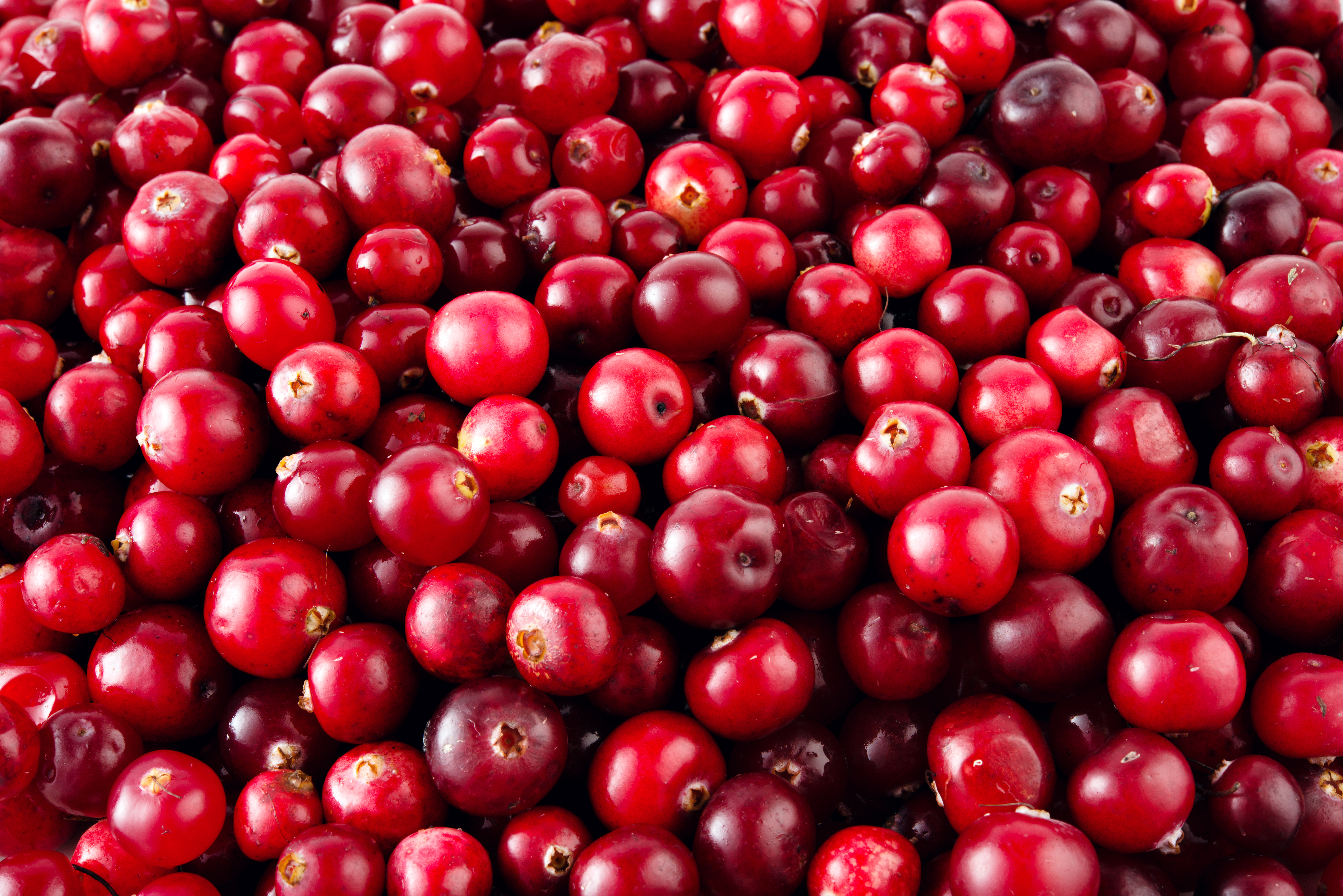
A superfood and a Christmas favourite – what more could you want? Cranberries are a tart, ruby-red berry which grows wild on shrubs throughout northern Europe and North America. High in vitamins C and D, potassium, manganese and iron they are believed to be a natural remedy for a host of health conditions, particularly urinary tract infections.
About 95% of cranberries are processed and used to make cranberry juice and sauce (particularly for Thanksgiving and Christmas). They are also sold dried and sweetened which can be added to breakfast cereal, baked cakes and scones, or just nibbled as a tasty nutritious snack.
Cranberries can also be used to add tartness to savoury dishes such as soups and stews, and even stuffing. Fresh berries should be plump and firm, and are widely available between October and December.
Try stirring a couple of tablespoons of cranberry sauce with some almost cooked chipolata sausages. Return to oven for 5 minutes and enjoy sticky Christmassy sausages.
Try this homemade cranberry sauce and make your Christmas dinner a real treat. click here.
Chestnuts
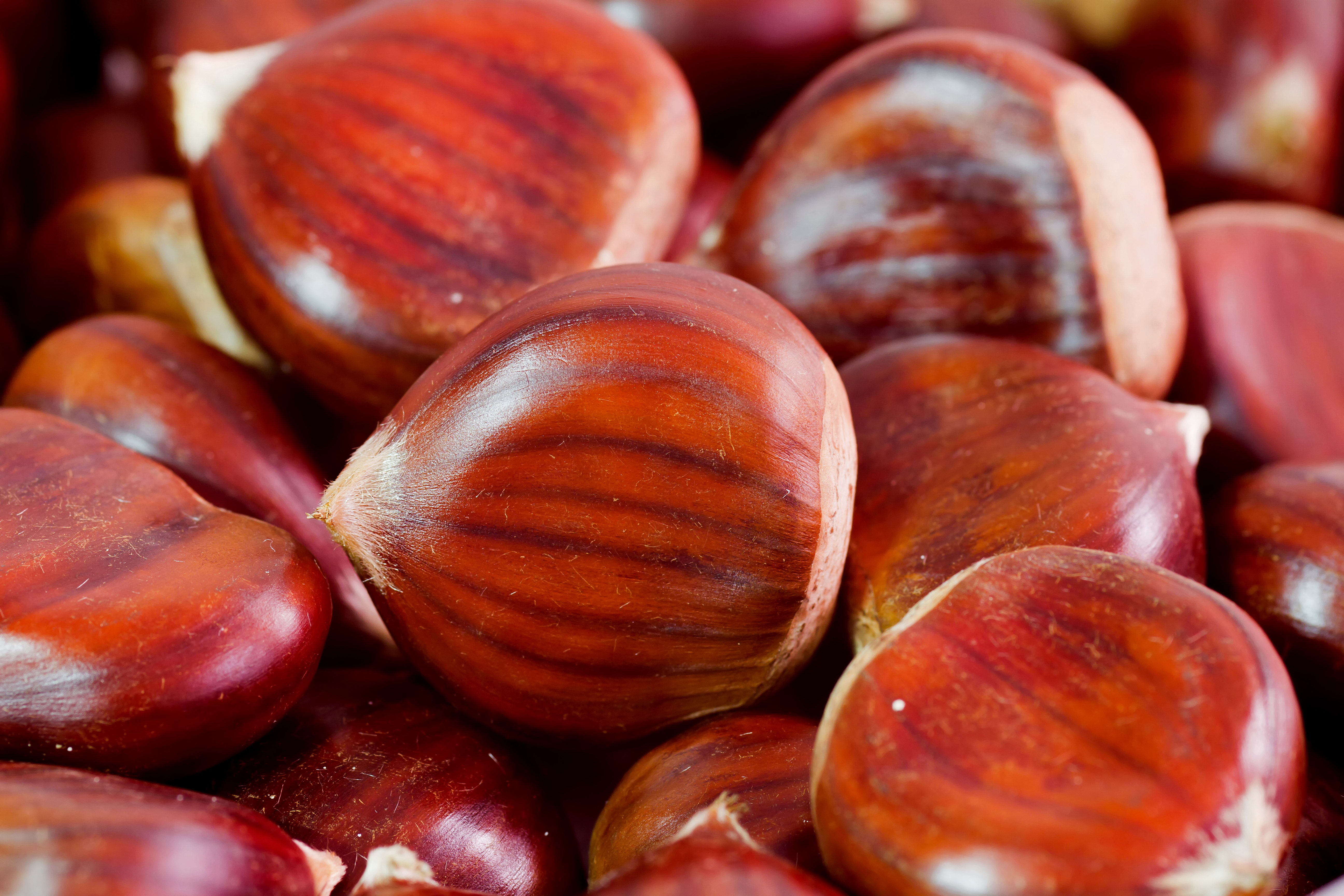
Chestnuts seem to suddenly appear at Christmas, but they are around right through the Autumn. They come from the Sweet Chestnut tree and the shiny nuts are encased in prickly, sharp-needled shells which must be removed. The nuts can be boiled or roasted, but must be cooked before eating. Make a split in the skin before heating or they will explode, and when cooked the skin will slide off.
The nut not only tastes delicious roasted, but is packed with healthy benefits. They are high energy and low-fat, and the only nut that contains vitamin C. Chestnuts contain high amounts of dietary fibre, which helps reduce cholesterol. This, coupled with their high content of manganese, allows chestnuts to aid faster healing and reduce the risk of some cancers and heart diseases.
Peeled chestnuts come canned, dried or vacuum packed and are versatile enough to be added to sweet or savoury dishes. Chestnuts do not contain gluten, so appear in many gluten-free foods. You can buy chestnut puree which is a brilliant addition to seasonal puds. At Christmas, you can add chestnuts to your Brussel sprouts or stuffing, or even cook them whole next to your turkey.
For a delicious indulgent pudding try our indulgent Chocolate & Chestnut torte. click here.

